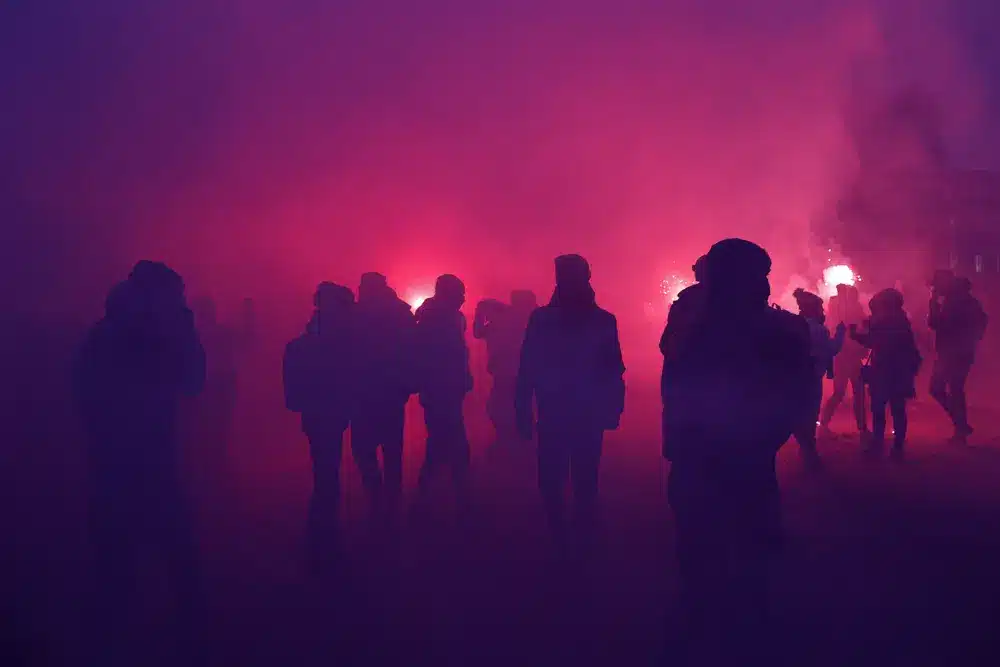PARIS, France — According to the Interior Ministry, an estimated 1.27 million people took to the streets of French cities, towns, and villages on Tuesday in massive protests against President Emmanuel Macron’s plans to raise the retirement age by two years.
In a big win for labor unions, more people showed up than at the last round of strikes and protests against the proposed pension system changes. Prime Minister Elisabeth Borne had to say that her government “hears” the “questions and doubts” raised by reforms that would raise the retirement age from 62 to 64.
The eight unions that organized the protests announced new demonstrations for February 7 and 11.
“In the face of widespread opposition, the government must pull back on its reform,” said Patricia Drevon of the Workers’ Force union, who stood with other union members in a rare public show of unity.
According to the powerful CGT union, 2.8 million protesters marched in french on Tuesday.
The Franch Love To Strike
National strikes and protests were a litmus test for Macron and his opponents. The government has said that it is determined to keep Macron’s promise to change French pension system, which he made during the election. But a lot of people will be against the bill, which will help labor unions and left-leaning lawmakers stop it.
Later Tuesday, Prime Minister Borne extended a tentative olive branch to protesters and unions, tweeting: “The retirement reform raises questions and doubts. We can hear them.”
This means that changes are possible, but not necessarily a full withdrawal, which is what protesters have been calling for. According to her tweet, the upcoming debate in parliament “will allow us… to enrich our project with a goal” of ensuring the future of France’s pension system. “We bear responsibility.”
Borne recently stated that raising the retirement age to 64 is “no longer negotiable.” On Monday, Macron defended the reform as “vital.”
According to police, 87,000 people took to the streets in the capital, up from 80,000 in the first major pension protest on Jan. 19, when authorities claimed 1 million people demonstrated nationwide. Estimates from the union had more than doubled that figure.
Radicals And Riot Police Clash
The otherwise peaceful Paris march was marred by sporadic clashes between a small group of black-clad radicals and riot police, who fired tear gas near Les Invalides, the site of Napoleon’s tomb, where the march ended. There were 30 arrests there and along the route, according to police.
11,000 police officers were on duty for an estimated 250 protests across the country.
“The government is currently backed into a corner. “It only needs to withdraw its reform,” Erik Meyer of the Sud Rail union, one of eight unions that organized the march, told BFM TV.
Veteran left-wing leader Jean-Luc Mélenchon praised the protests as “historic” and predicted Macron’s defeat.
“We don’t see such a mass mobilization very often,” he said in the southern city of Marseille. “It’s a type of citizen insurgency.”
The demonstrations were not limited to France’s major cities. On Ouessant, a tiny western isle of about 800 people off the coast of Brittany, about 100 protesters gathered outside Mayor Denis Palluel’s office and marched, he said.
Retiring At A Reasonable Age Is Important To The French People
The prospect of having to work longer hours alarmed mariners on the island with difficult ocean-going jobs, according to Palluel.
“It’s important to retire at a reasonable age because life expectancy isn’t very long,” he says.
Protests by people of all ages were loud and colorful, with sirens, bullhorns, and smoke bombs, continuing a long tradition of taking democracy to the streets in France.
Strikes disrupted services across France on Tuesday, in addition to the protests.
According to SNCF, most train services in Paris, other regions, and France’s flagship high-speed network connecting cities and major towns have been disrupted. Station closures and cancellations also impacted the Paris Metro.
Power workers in key positions, who are not allowed to go on strike, showed their support for protesters by temporarily cutting electricity supplies without causing blackouts, according to the company that makes the electricity, EDF.
Local Striking Impacted Schools
Civil servant Jamila Sariac, 60, believes the pension system should be left alone.
“Social protection is a milestone of our society, a milestone that the government wishes to break,” she said, adding that strikes would put more pressure on the government than protests. “We owe it to our forefathers who contributed to France’s wealth.”
Said Belaiba, who works in construction, was one of the people whose train from Paris to Lyon in the morning was canceled, so he had to wait. Nonetheless, the 62-year-old said he was opposed to the proposed reform.
“My job is physically demanding,” he admitted. “You can’t keep going past 64.”
Strikes also impacted schools, with the Education Ministry reporting that roughly one-quarter of teachers remained absent from work — fewer than in the previous round of protests.
Walkouts in oil refineries were also reported in French media. Because of the strike, radio station France Inter played music instead of its usual morning talk shows and apologized to its listeners.
SOURCE – (AP)













